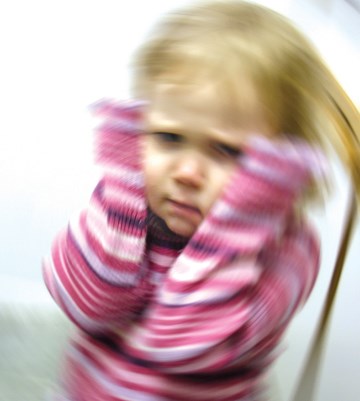More than 40 countries have prohibited physical punishment of children.
That means that their children cannot be hit, swatted, smacked, belted, strapped, whopped or spanked by anyone.
Canada is not one of those countries. If we truly care about the health and well-being of children, we need to be counted as a country that does not sanction their physical punishment.
Corinne's Quest: End Physical Punishment of Children is an organization dedicated to seeing this accomplished.
Called Corinne's Quest to honour the work of Corinne Robertshaw, a lawyer who dedicated the latter part of her life to this issue, the organization's mission statement is "to promote the raising of children in a positive, non-violent manner and to press for repeal of Section 43 of the Criminal Code."
I am a lifelong advocate for ending physical punishment of children and I chair the Corinne's Quest steering committee. We have a dynamic blend of members on our committee who are working in various fields of child services, plus a number of community leaders who are now retired.
Watch out! Those retired members have time on their hands and experience in their background, so as a group we believe we can move mountains.
At various times in our history, Canadian laws have sanctioned hitting slaves, apprentices, prisoners, dogs, wives and children. Today in Canada, children are the only group left on that list.
In addition to the repeal of Section 43, Corinne's Quest intends to help educate Canadians on the many progressive and effective non-violent ways parents can raise their children to be responsible self-disciplined adults.
Physical punishment is the use of physical force with the intention of causing a child to experience pain but not injury for the purposes of correction or control of the child's behaviour.
Physical punishment of children carries real risk factors. Elizabeth Gershoff from Columbia University took a look at 88 studies over 62 years of collected data. She studied links between parent use of physical punishment and childhood behaviours and experiences. And she found that it can lead to impaired parent-child relationships, poor child mental health, child aggression, lower moral internalization (kids learn to change behaviour through fear of being hurt rather than because it's the right thing) and delinquency. Some of these factors carry on into adulthood.
That does not imply that all children who experience physical punishment turn out to be aggressive or delinquent. I see it as being similar to smoking. For decades we all smoked, then we discovered the risk factors associated with it. Now, we know that there are people who are heavy smokers and experience no serious consequences. But we also know that each cigarette increases the odds of medical problems.
With spanking, there may not be negative outcomes, but each time a child is hit, the risk is real. And the more often and harshly a child is hit, the more likely there will be problems.
The real question is why would we even consider hitting kids? After all, it's just not nice to hit people and we believe that children are people and not property and therefore we shouldn't hit them.
Having Canada join the more than 40 countries that have abolished physical punishment is easy. Section 43 of the Criminal Code of Canada explicitly permits hitting children.
Government could simply repeal Section 43 and then Canada's children would enjoy the same protections under the law as adults.
Corinne's Quest has a website (corinnesquest.ca) and we ask you to log on and sign in as a supporter. In doing so, you will be letting our politicians know that you want to live in a country that protects children from all forms of physical harm.
Kathy Lynn is professional speaker and author of Vive la Difference, Who's In Charge Anyway? and But Nobody Told Me I'd Ever Have to Leave Home. Read more at parentingtoday.ca.



